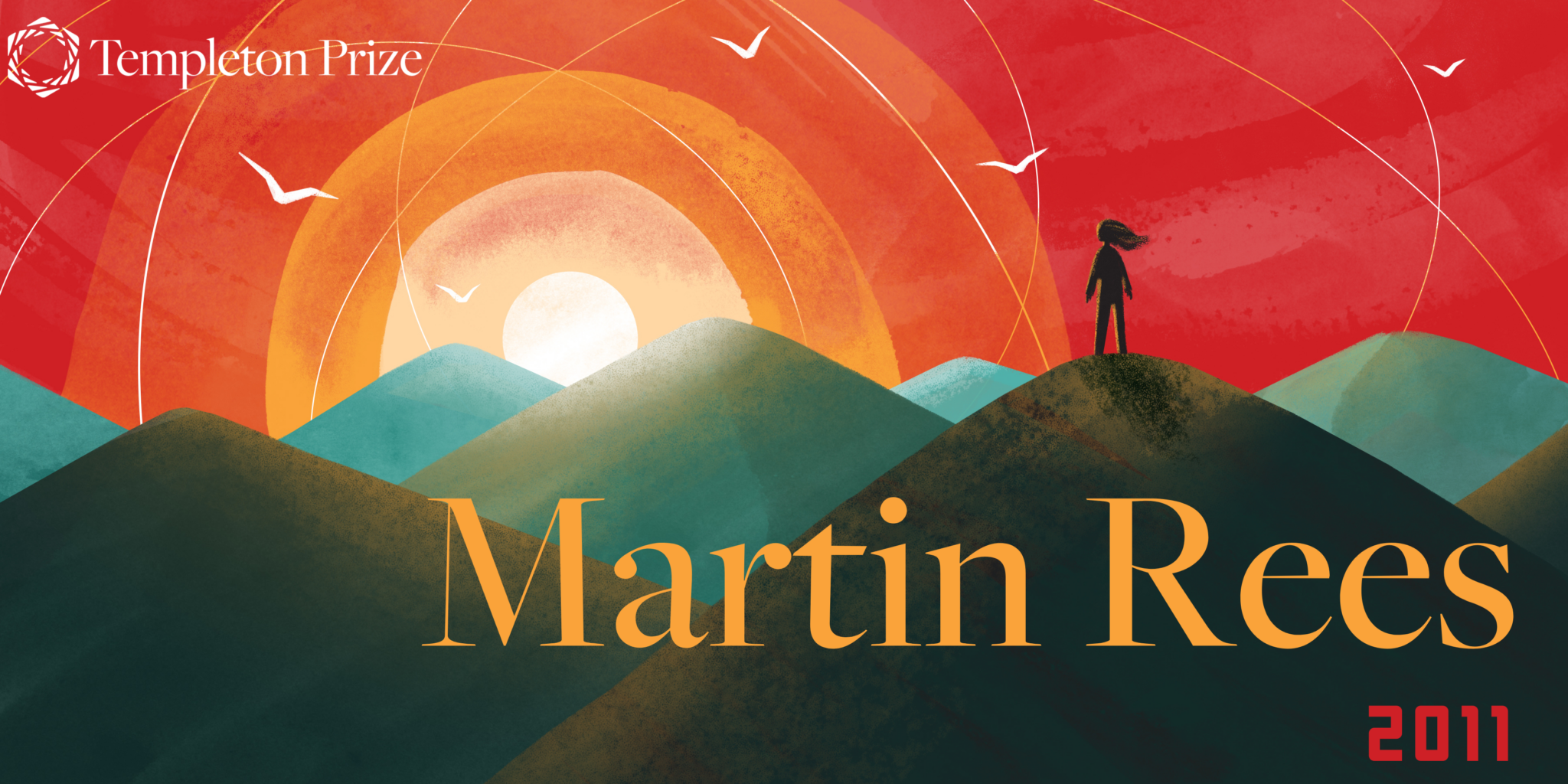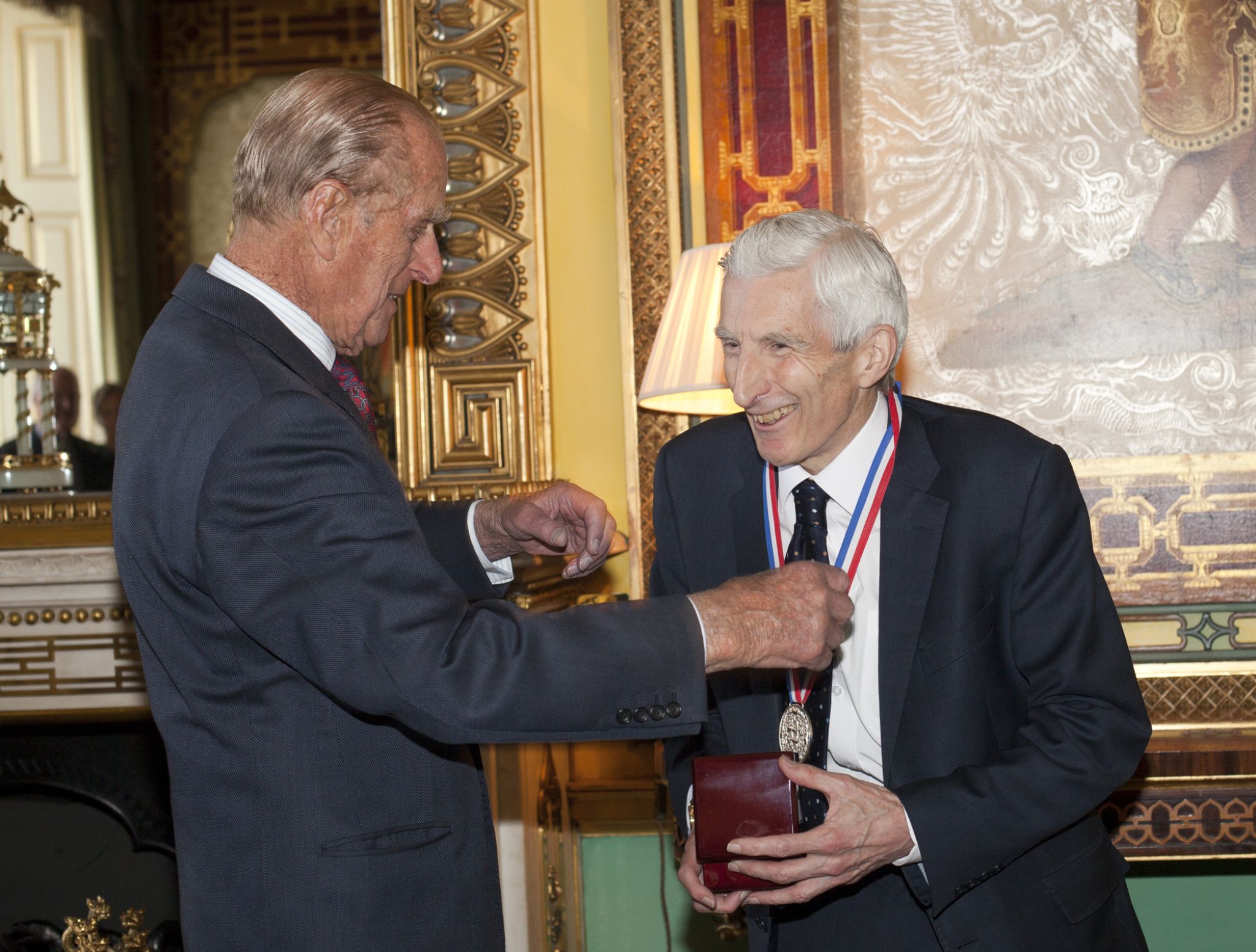In 1973, the first Templeton Prize was given to Mother Teresa. In 2023, we celebrate the 50th anniversary of this award. Over the next 52 weeks, we will highlight each of our laureates and reflect on their impact on the world. From humanitarians and saints to philosophers, theoretical physicists, and one king, the Templeton Prize has honored extraordinary people. Together, they have pushed the boundaries of our understanding of the deepest questions of the universe and humankind’s place and purpose within it, making this (we humbly think) the world’s most interesting prize.
Born on June 23, 1942, in York, England, Martin Rees is an astrophysicist and cosmologist who has spent his life delving into the mysteries of the universe. The Astronomer Royal, former Master of Trinity College, Cambridge, and former president of the Royal Society, Rees is one of the world’s leading theoretical astrophysicists.
With a burning interest in the universe, Rees began his academic studies at the University of Cambridge, earning his undergraduate degree in mathematics. He later obtained master’s and doctorate degrees in theoretical astronomy at Trinity College, Cambridge. His early research focused on areas like radio galaxies and quasars, contributing to the growing understanding of the universe’s most distant and energetic objects.
In 1973, Martin Rees made a significant contribution to our understanding of quasars when he suggested that these cosmic phenomena were powered by supermassive black holes. This idea, initially met with skepticism, has since become a fundamental concept in astrophysics and has laid the groundwork for subsequent advancements in black hole exploration. Rees’s work in the field of cosmic microwave background radiation has been instrumental in confirming the Big Bang theory. He has been a strong advocate for the idea that the universe originated from a singularity, expanding and evolving over billions of years.
Serving as the Astronomer Royal, Martin Rees plays a vital role in promoting public engagement with astronomy and science, making complex astronomical concepts accessible to the general public and emphasizing the importance of science communication in today’s world.
-

Martin Rees and HRH Prince Philip, Duke of Edinburgh
In 2011, Martin Rees received the Templeton Prize in recognition of his pioneering investigations of the implications of the big bang, the nature of black holes, and events during the so-called ‘dark age’ of the early universe, which have contributed to the understanding of the origin and nature of the universe.
Rees was awarded the Templeton Prize by HRH Prince Philip, the Duke of Edinburgh, at a private ceremony at Buckingham Palace in June 2011.
“But, as always in science, each advance brings into focus new questions that couldn’t previously have even been posed and which enlarge our horizons still further. The vast domain that astronomers can observe could be an infinitesimal part of the totality. Our big bang may not be the only one: we may be living in a ‘multiverse’ – an archipelago of cosmoses, perhaps governed by an array of different physical laws.”
—Martin Rees

